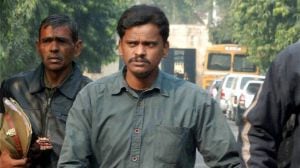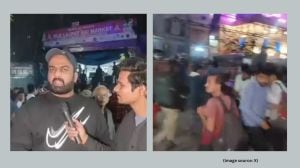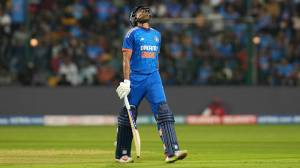Routed in LS,shunned by Cong,PDPs survival at stake
In the December Assembly polls last year,the Peoples Democratic Party (PDP) walked away with 21 seats.
In the December Assembly polls last year,the Peoples Democratic Party (PDP) walked away with 21 seats,second only to National Conferences 29. But just four months later,it lost all six Lok Sabha constituencies in Jammu and Kashmir,raising questions about the future of a party,which in just over 10 years changed the political landscape of the state.
The party now has reason to be very afraid. Unlike the 80-year-old NC,it does not have the kind of grassroots-level following the rival party does. After all,the PDP is essentially an electoral party forged in haste to encash the anti-NC wave,winning by default in 2002 as the only alternative to NC. But what distinguished the PDP subsequently was its ability to consolidate its political credibility during its years in power.
Now,after the drubbing in the parliamentary polls,is the party over for PDP? The partys president Mehbooba Mufti doesnt agree. We havent lost by huge margins. In Anantnag and Baramulla constituencies,we ran up close to the winning NC candidates, said Mehbooba.
The partys chief spokesman Naeem Akhter is cautiously optimistic. The PDP does face definite challenges. For instance,in Baramulla,separatist leader Sajad Lones entry into the fray took votes away from us. We have to seriously think about overriding this factor, said Akhter. He also insists that the PDP has some advantages over the NC. We have acquired an individual identity with roots in the political aspirations of the people. We do not go against public sentiment for the sake of power,which the NC is notorious for.
But it is the partys metamorphosed agenda that has made it a political pariah for its only possible mainstream ally in the state the Congress. And this is what greatly reduces its chances of forming any future state government. The PDPs self-rule document,released in the run up to the Assembly polls,had called for a drastic redefinition of Kashmirs relations with New Delhi in a broader politico-economic framework involving Pakistan. The document calls for a constitutional restructuring,dual currency,roll-back of Central laws applicable to the state and an elected governor. The centrepiece of the governance structure under self-rule is the cross-border institution of Regional Council of Greater Jammu and Kashmir. This council,the party says,will replace the Upper House of the Legislative Council. The regional council will have members from J&K and Pakistan-occupied Kashmir as well as the nominees of the Governments of India and Pakistan. This did not go down well with the Congress.
In New Delhi,the PDP is generally perceived to have drifted from the mainstream. The party now finds itself in a serious dilemma: its posture has been taken at its face value and what may have been merely a handy political gambit is being seen as an unpalatable core ideology. After all,this is what NC veteran Ali Muhammad Sagar blames the party for: The PDP has perfected the art of supply-and-demand politics. It supplies the political slogans tailor-made to public demand. There is nothing which can be called a core ideology.
But Naeem Akhter would have none of it: That PDP has not gone back on any of its positions in any situation. It is the NC that backed away from its autonomy resolution. The party bartered it away for power after passing it with a landslide majority in the Assembly. Akhter added,The PDP has proved its mettle in several elections,even expanding its base in Jammu,where we took two seats in the Assembly polls, Akhter says. The NC should realise that it is no more the sole arbiter and the PDP is no longer a fluke.



- 01
- 02
- 03
- 04
- 05




























